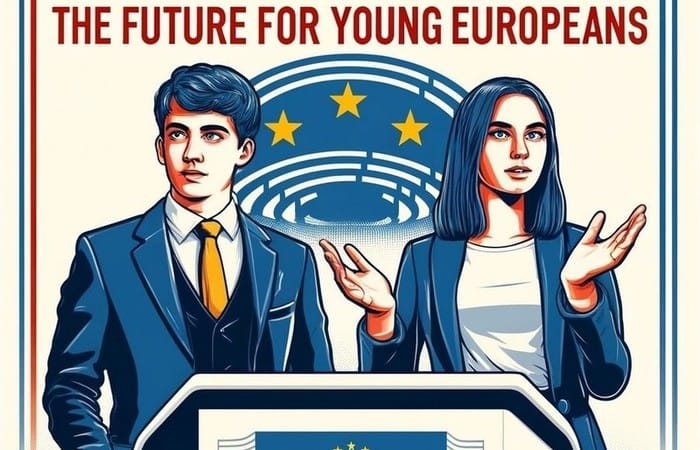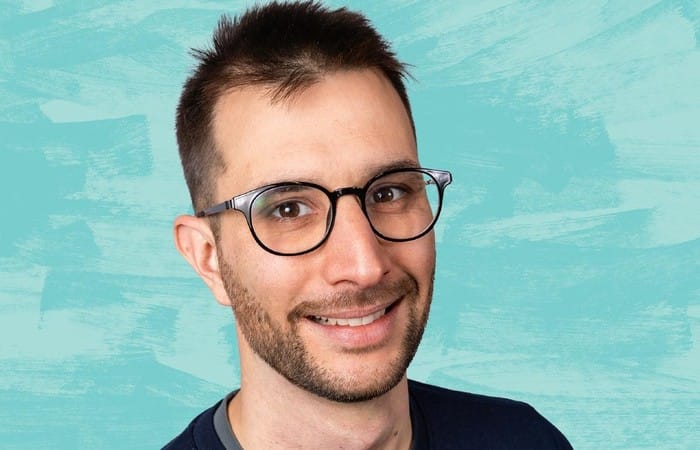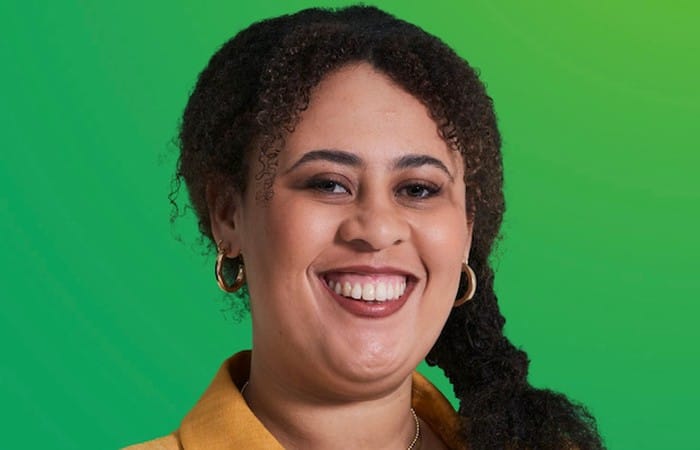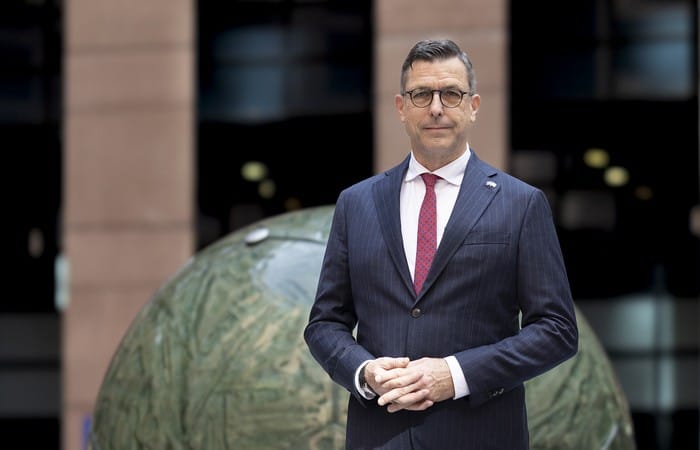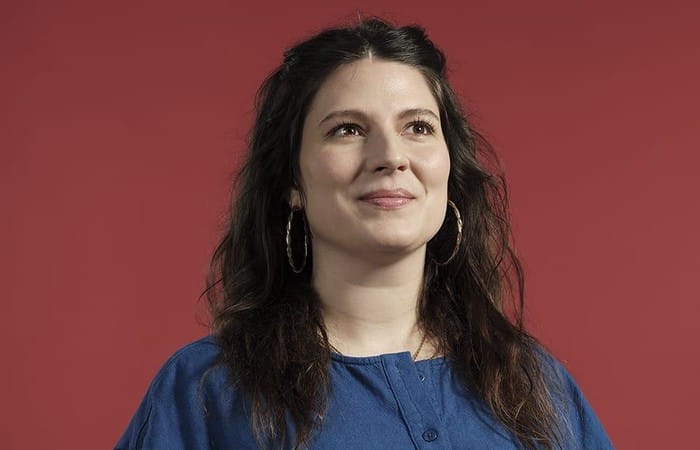... it’s time after 64 years of continuously and successfully growing business in the world of our 14 classical European Schools and now 11 Ecoles Européennes agrées to have a short stop. Let’s consider, seen from an Alumnus Europae, what has been achieved and maybe what should be done on top, right now.
You are so right, I think, it’s time after 64 years of continuously and successfully growing business in the world of our 14 classical European Schools and now 11 Ecoles Européennes agrées to have a short stop. Let’s consider, seen from an Alumnus Europae, what has been achieved and maybe what should be done on top, right now.
Let me start with a very personal comment: I had the privilege to attend the ES Brussels 1, in 1960, as an Austrian child whose country just recognized the Baccalauréat Européen. As a reaction of courtesy to my country, my sister and myself have been invited to join this very special world. One of the main and most impressive elements of my 8 years at my school, was the respect awarded to each pupil regardless from his geographic origins. We learned fast that we belonged to a meritocratic milieu with clearly defined ethical values. Hard work in school and at home was expected and considered as business as usual. We loved it, we were impressed and built up a community, lasting some time, for our whole life. And as you see, I am here and struggle for the system.
You have built it, you have financed it, and you got the very first genuine European citizens. It is truly a collateral task for the construction of Europe.
This, in few words is my answer to your question re the value of your investment, our schools. It couldn’t have been better.
I thank you warmly for the privilege to be here and to address my message to you in the name of my 70.000 fellow bacheliers, the alumni of our Ecole Européenne world, and not to forget the larger number of certainly more than 100.000 pupils who attended our schools and who left for various reasons before the famous final examination. These too, we welcome them in our network of Alumni Europae.
Let’s come now to your questions, in fact 4 very important ones targeting the “raison d’etre” of this system.
And I enlarge the fourth question so as to complete it:
Ad 1
Let’s focus on the first question: what about the importance of the primary and secondary education in our schools ?
When the great European project started with the three institutions, the CECA, the EURATOM and the MARCHE COMMUN, when the first Fonctionnaires came to Luxemburg, Karlsruhe and Brussels, they had in their luggage not only an overdose of European enthusiasm and will to construct a united and peaceful Europe. They had children too. This was one of these seldom moments to set up something extraordinary, something totally new. It was the moment to create a new, a unique educational system.
New because no existing school was able to absorb these children coming from all over “the Europe of 6”. Unique because it was a combination of the requirements of all the 6 countries at the highest not the lowest level . And it was much more than a mere pedagogical experience, it was a humanistic challenge to combine the positive elements and characteristics of each participating country to a better and greater mix..
The children understood right from the very first day in the primary section that this dynamic melting pot was a much better issue than a situation of static concurrence. This “ let’s do it together”, the attitude of adding positive ingredients is the dynamic of our school life during the whole time of the 12 years before passing the Baccalaueréat. Pragmatically and simply: after 12 years, every one, pupil, teacher, parents understood what it means to live naturally in a European community, to understand the specific national characteristics as chances and not limitations.
However it’s amazing to realise that it took 64 years to come to this meeting today: You have been investing probably much more than only € 1 B in this system and you never asked for a return. We the Alumni Europae are keen to give back and I’ll come to it in a moment. My most spontaneous reaction however to this is to say: Thank you for this unique, great educational system. You gave us magnificent surroundings, extraordinary teachers and tools. Each one of us, knows this. Let’s try now to see how we can distillate a positive return. It’s possible.
Ad 2
You wonder about the spirit of European unity. The answer is twofold and simple: The European Unity is a matter of fact within the school. Of course differences exist, they might be defined as specific and objective characteristics. These elements are not a matter of limitation but dynamic elements of a community. The problem arises outside of the schools in the “normal world” which lacks behind our reality. Once we leave the schools, when we start at the universities, in our jobs, we sadly are back to a “black-and-white” modest reality which lacks behind what we experienced. And this clearly is an element of frustration. Many if not most of us would have loved to integrate a “European University”. My daughter, an Alumna of the ES Frankfurt, is studying in Bonn, a great university, but she wonders how classical, how national minded her new and dear friends are.
What does this mean when we leave our schools? The openness is at risk. The experiences to combine the positive elements of 28 or 27 nations is not a priority anymore. We should avoid to throw away this approach to life. What kind of natural resources does Europe have if not brains and open minds? Can we afford to sacrifice these talents? Certainly not.
Ad 3
How can it, the European message, be passed to pupills ?
My first reaction would be: don’t worry, they all understood. It’s in fact their natural world. You will be astonished to see how the children behave when they meet at Eurosports, Europarty . When the 25 European Schools send their delegates and when they spend some days together. It works automatically, spontaneously. There is no need to explain anything. And more, when you consider the tremendous meetings of MUN, in Munich, or in Shanghai or wherever it is, it’s amazing to realise the high quality of their meetings, discussions beyond any national limits. To summarise: It’s done!
Ad 4 and Ad 5
Potential to influence the appearance of the union in the future? Here it comes to the point.
When I attended the ES School, Brussels 1, we were convinced that the real political Union would be a pragmatic reality in the late 70ties. This was our view and more than a view, it was a hope. I remember how happy we were when England joined us. Our sweaters got the famous 7 th star. Reality sometimes hits dreams.
How can the schools influence the Union in the future? And can they influence? My very personal answer is: Yes the schools thanks to their pupils, to their Alumni can influence. Every year, and the trend is growing, roughly 2000 new alumni leave the system for the outside world. It’s an impressive number which has to be added to the more of 100.000 of the early years.
We are 70.000 alumni and since 40 years we, a small group of active Alumni invest time, energy and money to regroup them, to organise them, to set up an organisation with 4 clearly defined goals: Connect-Identify-Support-Promote European values. Our 70.000 alumni, broadly, have an impressive academic education, work all over mainly Europe and as far as we learned it, have an impressive professional track-record. They usually work at respectable and high professional levels. More than that, they are keen to stick together, to extend their hand to other alumni and to use actively their network which must be set up.
Looking at them, what are their specific USP’s, their unique selling propositions?
Is all this used? No it is not. The return of this impressive educational investment is massively sub-optimal. Let me give a suggestion to reverse the situation. The issue at stake is obvious: to use the potential of these 70.000 bacheliers, the potential of all those who now leave one of the 25 European Schools and they are, by definition, Europeans. Yes they want to contribute to the process of European Union. They have the ingredients to do so.
What can, what should be done? You, the European Parliament, you the Commission you The Délégate Mr. Marcheggiano and we, the Alumni Europae should work closely, actively, trustfully together. We should overcome the status of reflection, we should act boldly and do more than granting moral support. You have the financial means, you have the information and we have the will to use it at its best.
And we have shown what can be done with more or less no money in our pockets but with a lot of enthusiasm and energy. Yes, we imagine a concrete task force under the umbrella of the various European Institutions to take care of the alumni and to bundle their resources and thus to activate their potential. To do so, we have to integrate a maximum of these 70.000 bacheliers or 100.000 pupils. To recruit a maximum of bacheliers who leave every year our schools. This process should be automatic, organic .This task is beyond the possibilities of our small team with their most modest means. Yes, as a banker, I suggest that a reasonable, supplementary investment is done so as to save the tremendous initial one. I state it clearly: don’t waste the € b which yet has been paid. Let’s set up a small, effective team with the technical equipment we need, give us a decent time horizon and then we will manage to be autonomous thanks to our membership fees. Yet we can’t, but we have done the initial work. We have the legal structure, we have the modest but effective it-platform, we have the organisational infrastructure, we have a great team as a nucleus devoted to achieve what I have described. Let’s cooperate to conclude what has been initiated, what is so close to a break-through in times when Europe is at risk as no one of us, I guess, ever would have suspected. It’s time to act.
Let me conclude

